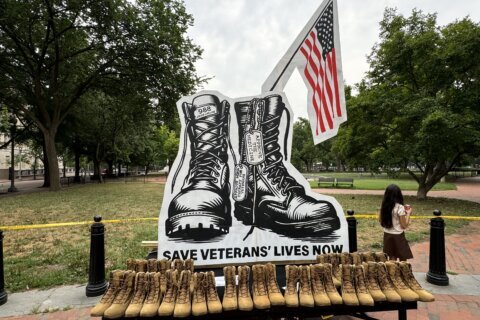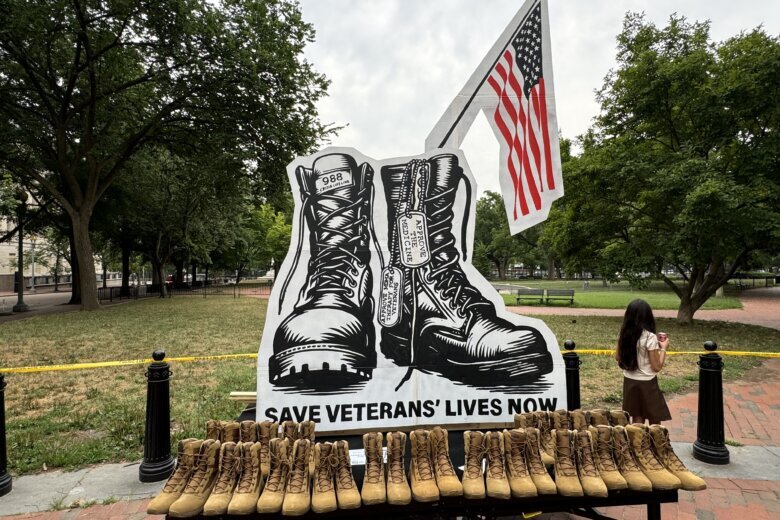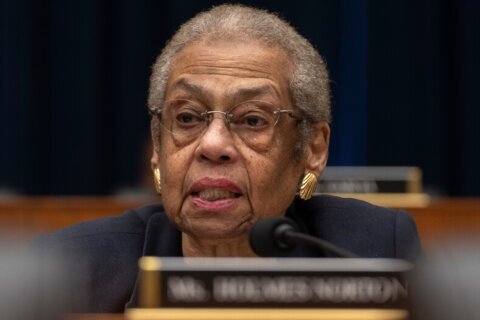
In Lafayette Park, just steps away from the White House, 17 pairs of boots sit side by side. They symbolize a grim statistic from the U.S. Department of Veterans Affairs: On average, 17 military veterans die by suicide each day.
The art installation is part of a push by two groups — Healing Breakthrough and Heroic Hearts Project — to encourage the Food and Drug Administration to greenlight psychedelic assisted therapy for treating veterans suffering from PTSD when the agency makes a final decision on Aug. 11.
“Unfortunately, in this country, there’s still a lot of stigma around psychedelics and similar drugs,” said Army Ranger veteran Jesse Gould who heads the Heroic Hearts Project.
The therapy being considered by the FDA is known as MDMA-AT. MDMA is the active ingredient in ecstasy, which makes it a Schedule I narcotic, a barrier Gould said makes it difficult to study. The company behind the treatment, Lykos Therapeutics, said its study showed that 71% of trial participants had their PTSD diagnosis eliminated after the treatment.
However, the treatment was greeted by skepticism during a meeting of FDA advisers in June, with members voting 10-1 against the overall benefits of MDMA. Some of the members that voted against it expressed concerns about possible misuse that could come with approving the treatment.
Gould believes the committee “fumbled the ball” in its decision and hopes the FDA will vote differently when it decides on whether to approve the therapy next month.
Gould who has used psychedelics to treat his own PTSD said the drug would be used in a controlled setting with a therapist.
“The reason it works in this context, with the safe setting, is because the chemical itself, the MDMA, allows people to be more vulnerable, more tapped into the emotions, and allows them to have more trust to the therapist,” Gould said.
Gould said there is a critical need for more treatments for PTSD and he believes these types of drugs can help — because they helped him, he said.
“I don’t think I’d be here if it wasn’t for the treatments I went through,” Gould said.
Get breaking news and daily headlines delivered to your email inbox by signing up here.
© 2024 WTOP. All Rights Reserved. This website is not intended for users located within the European Economic Area.









